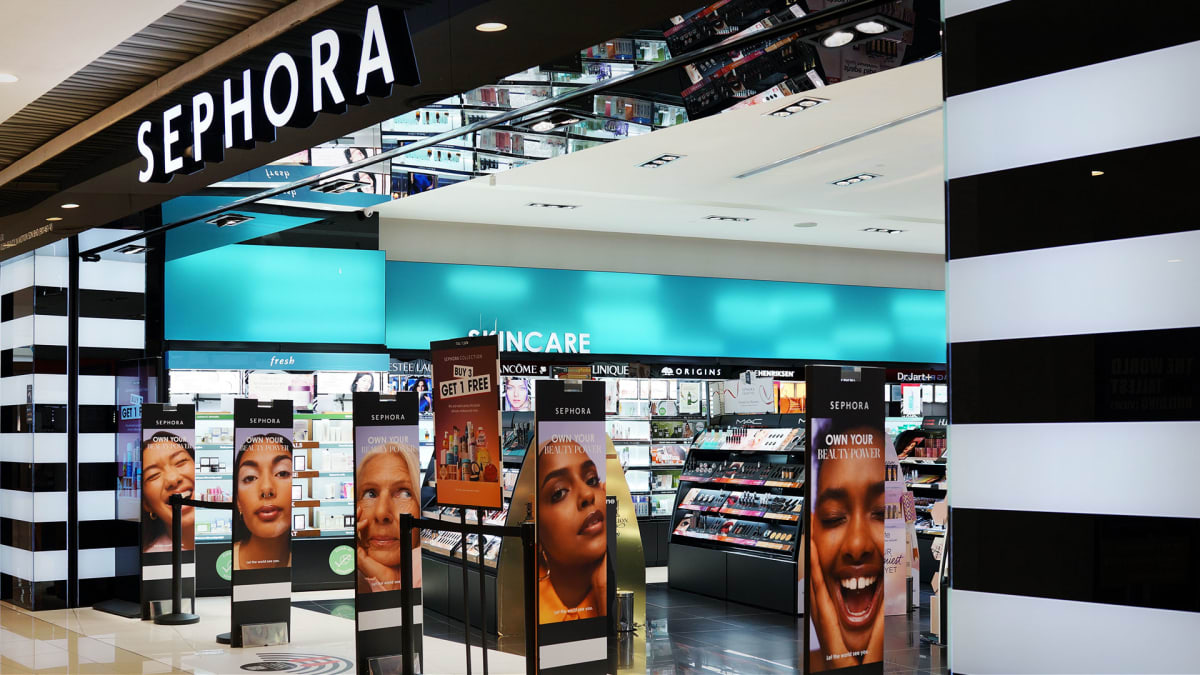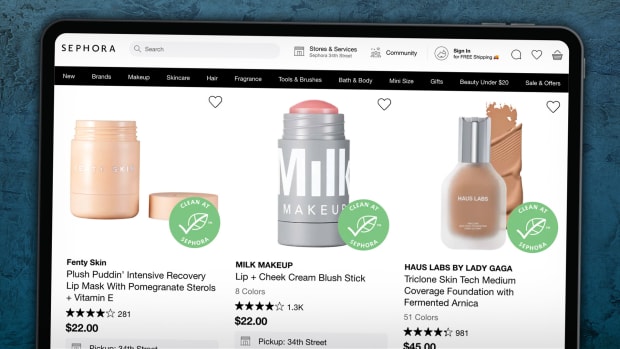
Unless you've been living under a rock for the last decade, you've probably heard the term "clean" thrown around a lot in advertisements for many products. From "clean" eating to "nontoxic" beauty, Millennial and Gen-Z consumers place a lot of importance on the ingredients they're putting in and on their bodies. There are several hot marketing variations on the concept of "clean," like "nontoxic," "natural," "green," and "organic." But for both food and cosmetics, these buzzwords remain largely unregulated.
In the case of the beauty industry, the term "clean" is usually understood to mean that the product is free of parabens and formaldehyde-releasing agents -- but there's no court, other than that of public opinion, that could punish a company for claiming to be clean while using these or other potentially harmful chemicals. In the EU, there are much stricter standards for ingredients used in cosmetics. In the U.S., legislation has been proposed to increase the Food & Drug Administration's oversight of the beauty industry.
Until then, cosmetics companies have their own specific definitions of which ingredients are safe and what can be labeled as "clean." Major retailers and e-commerce platforms Walmart (WMT), Amazon (AMZN), and Target (TGT) have "clean beauty" shopping sections and full power over which products qualify.

Sephora/TheStreet
Sephora's "Clean Beauty" Selections Come Under Fire
Cosmetics superstore Sephora, owned by luxury conglomerate (LVMHF) , offers a series of some 138 products it markets as "Clean at Sephora" -- which are free from a long list of ingredients, mainly “parabens, sulfates SLS and SLES, phthalates, mineral oils, formaldehyde, and more.”
At least one person took issue with the claims, however, filing a class action lawsuit against Sephora in New York. The suit, filed in Nov. 2022, alleges that the “clean” designation led the customer to believe that the products indicated “were not synthetic nor connected to causing physical harm and irritation.”
"More specifically, the 11-page case out of New York contends that 'a significant percentage' of the items bearing the 'Clean at Sephora' seal contain ingredients 'inconsistent with how consumers understand' the term 'clean.' The lawsuit says that as a result of Sephora’s 'false and misleading representations,' certain items are more costly than similar products that are 'represented in a non-misleading way,'" ClassAction.org writes.
On Thursday, representatives for the cosmetics retailer filed a motion to dismiss the lawsuit.
“Sephora prominently explains, in plain terms, exactly what it means by the phrase … ‘Clean at Sephora’ along with a clarifying definition that describes the kinds of ingredients that are excluded,” the company said in its filing Thursday.
The filing also says that the plaintiff "implausibly claims to think or how she personally may use the word…in a way wholly different from how Sephora clearly states it is using it.” The plaintiff's attorney has indicated that her legal team will go forward with the case.
Sephora Looks to Growth and Change in the New Year
"Clean" beauty quibbles aside, Sephora is still expanding its store presence, even as other beauty companies shutter their doors. Last November, LVMH appointed Guillaume Motte as Sephora's president and CEO. Just a few months before that, the company expanded its partnership with Kohl’s (KSS) stores to grow its presence within pre-existing stores.
Sephora also plans to reenter the UK market after a nearly 18-year hiatus -- indicating the beauty company is now back and stronger than when it exited the UK in 2005.







